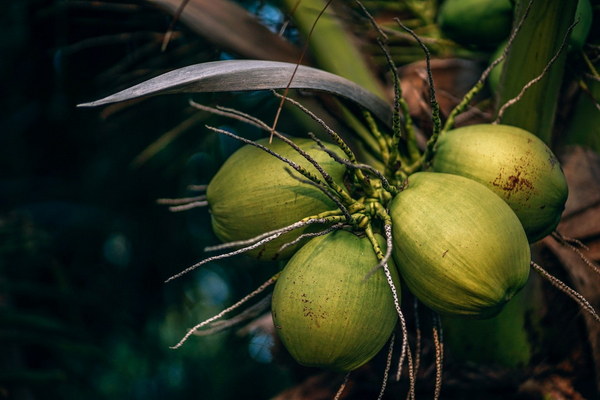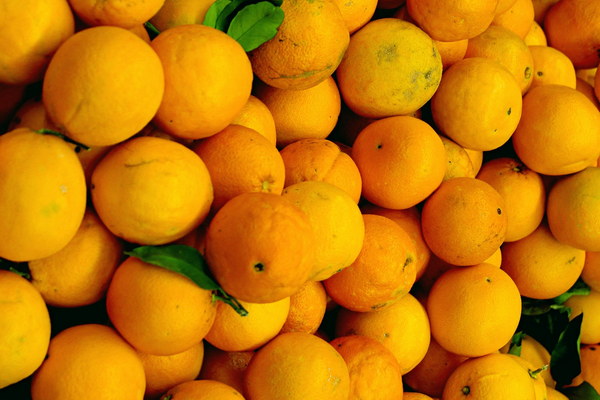Harmonizing Digestive Fire and Kidney Qi The Healing Power of Traditional Chinese Medicines
In the realm of Traditional Chinese Medicine (TCM), the balance of Yin and Yang is paramount to maintaining overall health. One of the key principles in TCM is the harmonization of the body's internal systems, such as the digestion and renal functions. When these systems are imbalanced, it can lead to various health issues. This article delves into the concept of harmonizing digestive fire and kidney qi, and explores the therapeutic benefits of traditional Chinese herbs designed to achieve this balance.
Digestive Fire, or Huo Xue, refers to the energy that governs the digestive process. When this fire is too strong, it can lead to symptoms such as acid reflux, heartburn, and indigestion. Conversely, when the digestive fire is weak, it may result in symptoms like bloating, constipation, and diarrhea. To maintain a healthy digestive system, it is essential to regulate the fire and ensure that it is neither too strong nor too weak.
Kidney Qi, on the other hand, is the vital energy that supports the body's overall health. It is responsible for bone strength, reproduction, and the function of the urinary system. When kidney qi is deficient, individuals may experience symptoms such as fatigue, weakness, low back pain, and decreased libido. To restore and maintain kidney qi, TCM practitioners use various herbal formulas that address the root cause of the imbalance.
The following are some traditional Chinese herbs and formulas that are commonly used to harmonize digestive fire and kidney qi:
1. Coptis Chinensis (Huang Lian): Known for its cooling properties, Coptis Chinensis helps to reduce excess stomach fire and alleviate symptoms such as heartburn and acid reflux.
2. Paeonia Lactiflora (Bai Shao): This herb is used to nourish the blood and alleviate pain, making it beneficial for those with kidney qi deficiency and associated symptoms like low back pain and fatigue.
3. Astragalus Membranaceus (Huang Qi): Astragalus is an adaptogenic herb that strengthens the immune system and supports kidney qi. It is often used in combination with other herbs to enhance their therapeutic effects.
4. Eucommia Ulmoides (Du Huo): Eucommia is known for its warming properties and its ability to support the kidneys and alleviate low back pain. It is often used in formulas designed to harmonize digestive fire and kidney qi.
5. Atractylodes Macrocephala (Bai Zhu): This herb helps to strengthen the spleen and improve digestion. When combined with other herbs, it can help regulate the digestive fire and alleviate related symptoms.
One of the most famous herbal formulas used to harmonize digestive fire and kidney qi is the Si Miao San, or Four-Ingredient Powder. This formula consists of the following herbs:
- Alisma Orientalis (Ze Xie): Helps to drain dampness and alleviate symptoms such as bloating and edema.

- Coptis Chinensis (Huang Lian): Reduces excess stomach fire.
- Poria Cocos (Fu Ling): Supports the spleen and promotes urination.
- Alisma Plantago-Australis (Ze Xie): Similar to Alisma Orientalis, it helps to drain dampness.
By combining these herbs, Si Miao San works to regulate the digestive fire, nourish the kidneys, and alleviate associated symptoms. This formula is often prescribed for individuals suffering from chronic digestive issues, such as irritable bowel syndrome (IBS), and those with kidney qi deficiency.
In conclusion, harmonizing digestive fire and kidney qi is an essential aspect of Traditional Chinese Medicine. By utilizing the wisdom of ancient herbal formulas and modern TCM practices, individuals can achieve a state of balance and optimal health. While it is important to consult with a qualified TCM practitioner for personalized treatment, exploring the world of traditional Chinese herbs can be a rewarding and beneficial journey towards wellness.









